YOGA TAICHI 91
Alliance harmonieuse du Taichi chuan , du Qiqong , Yoga et de la Méditation
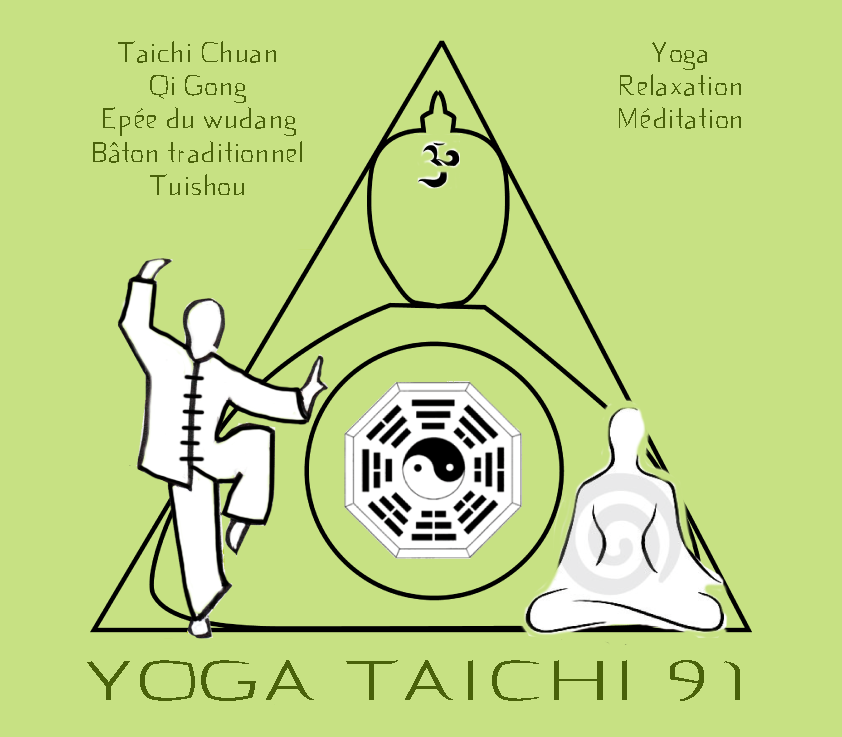
YOGA TAICHI 91
Christian RASOTTO
1 Bd de BRETAGNE
91160 LONGJUMEAU
06 17 08 68 09
01 69 09 42 67
shanti91160@gmail.com
Indications thérapeutiques du Qi Gong
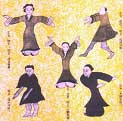
Little research on applications of Qi Gong are complying with strict protocols of modern science.In addition, research, mostly conducted in China or Korea for 25 years, are rarely published in the West.That said, here are the conclusions of major studies available.It is important to note that for most of them, the researchers point out that factors such as the few studies available, the limited number of participants, the lack of randomized placebo or an intervention limited the scope conclusions.Further studies are needed to confirm the results.
Research
Reduce hypertension.The use of Qi Gong in the treatment of hypertension is one of the best documented subjects.A systematic review published in 2007 identified 12 trials aléatoires9.These tests, involving a total of more than 1000 participants, compared the practice of Qi Gong (alone or with medication with conventional therapy) to various conditions (medication alone carry on a waiting list, progressive muscle relaxation exercise and combined to standard therapy).The results suggest that regular practice of Qi Gong could have positive effects on lowering blood pressure.
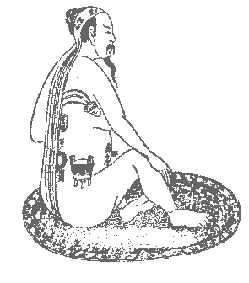
Reduce stress.A crossover study, involving 10 healthy students, evaluated the effect of Qi emission by a master (external Qigong) on stress tested, concentrations of cortisol (stress hormone) and waves cérébrales10.Students participated in a meeting alternately Qi Gong 60-minute, real or simulated.They experienced significantly more satisfaction, calmness and relaxation with Qi Gong Qi Gong with the actual simulated.The results also show a significant reduction in indicators of stress: decreased cortisol, decreased beta waves and increased alpha waves.
In 2010, a Swedish study showed similar results to the study précédente11.For 8 weeks, 147 students in middle school have either participated in 2 weekly sessions of Qi Gong exercises, or is part of the control group.The authors observed a reduction in levels of stress and psychological distress, and improved self-image in children Qi Gong group compared to control children.Moreover, assessing the level of wellness in school students has decreased in the control group, while it remained stable in group Qi Gong
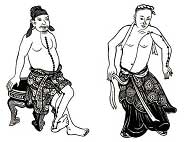
Reduce chronic pain.Two systematic reviews were published about chronic pain.One was Qigong internal self-même12 practiced, and the other on the external Qi Gong, issued by a maître13.The first review (Qi Gong Internal) concluded that available data were inconclusive because of the small number of studies listed (only 4 randomized clinical studies) and especially the poor methodological quality.For the second review (Qi Gong issued by a master), the results seem more promising.The 5 studies reviewed have better methodological quality and suggest some effectiveness of Qi Gong in the management of pain compared to control groups (placebo or Qi Gong care use).
In 2010, a new randomized trial, conducted among 50 people with chronic pain, compared the effect of 4 weekly sessions of 30 minutes of Qi Gong at a time equivalent external monitoring participant14.The majority of participants (74%) received another source of treatment during the experiment.Compared with the control group, participants in the Qigong group showed a significant decrease in pain intensity after 4 weeks of treatment.A month later, the improvements were still present, but not prove statistically significant.
Improving quality of life of cancer patients.In 2007, a systematic review assessed the effectiveness of the practice of Qi Gong alone or in combination with other treatments to improve the quality of life of people with cancer15.Nine studies (including 4 RCTs) totaling 346 participants were identified.Two of these trials suggest that Qi Gong may prolong the lives of cancer patients.But the authors concluded that, mainly because of poor study quality, we could not conclude that the effectiveness of Qi Gong for cancer.
Subsequently, in 2010, research on the effects of Qi Gong was conducted among 162 patients with cancer16.They were divided into 2 groups: Qi Gong (15 minute discussion on health, exercise 45 minutes and 30 minutes of meditation, 2 times per week for 10 weeks) and control group receiving usual care.The results indicate that at the end of treatment, quality of life, fatigue, mood and measured parameters of inflammation of the people of Qi Gong group had improved compared with the control group

Strengthen the immune system.Numerous studies in vitro and in vivo have examined the effect of qigong on various parameters of immunity.Many indicated that the emission of Qi by teachers or regular practice of Qi Gong could have a measurable effect on the production of various immune cells such as monocytes, lymphocytes, natural killer cells (NK) cells, neutrophils etc..1,4,17-31 Although these results are encouraging, their clinical significance is still limited.But according to most authors, it seems justified to continue research.
Reduce symptoms of premenstrual syndrome (PMS).Two RCTs assessed the effect of Qi emission on premenstrual symptoms in young women with premenstrual syndrome.The first study involved 36 women: half of them received 10-minute sessions of Qi applied by a master for others, the teacher mimicked the same gestures, but without issuing Qi32.Four sessions per menstrual cycle were performed for 2 cycles.Compared with women subjected to control treatment, those who received Qi reported a significant decrease in pain, water retention, their negative feelings and symptoms of premenstrual syndrome.
In the second study, a group of Qi Gong (9 sessions of 10 minutes of Qi emission by a master, spread over 2 menstrual cycles) was assigned to 23 young women, and 23 others were placed on a list of attente33.Sixty minutes after the interventions, the authors noted a significant effect on short-term pain, anxiety and depression.In the longer term, the results indicate a significant decrease in pain and water retention in women who received Qi compared with the control group.
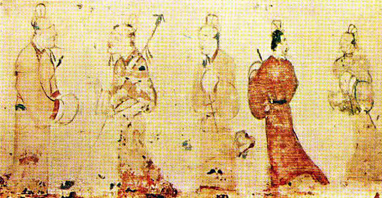
Improving quality of life of elderly.A 2003 study analyzed the effect of Qi emission on anxiety, fatigue, depression, pain and blood pressure of 94 âgées34.Participants were randomly separated into 2 equal groups.The first group received a program of 10 minutes of Qi.In the other group, the master applied the same procedure, but without emitting Qi.Qi Gong in the group, only the level of anxiety reported by the subjects decreased significantly compared to placebo, although the other parameters were also slightly decreased (depression, fatigue, pain and blood pressure).
Improving quality of life for people with heart problem.A recent study compared the effectiveness of the practice of Qi Gong and a progressive relaxation program to improve the quality of life of 65 people with various disorders cardiaques35.The participants, who were recommended by a specialist, have completed 4 sessions of 20 minutes of each therapy, alternating.The results indicate that qigong improves significantly the results of 7 of 8 parameters chosen to evaluate the quality of life, against one for the progressive relaxation.
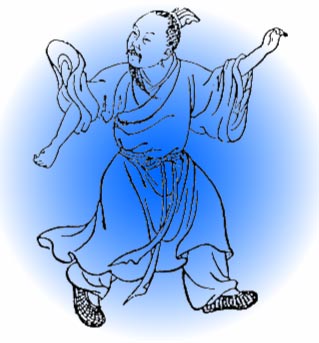
Contribute to cardiac rehabilitation.Rehabilitation programs are often recommended following a heart problem.Two studies have assessed the value of Qi Gong in this area.A first randomized controlled trial studied the effect of Qi Gong combined with discussion groups on the physical skills of 95 people aged 73 years or older and suffering from artery disease coronaire36.Half of them participated in weekly meetings with 1 hd'exercices Qi Gong and 2 hours of discussions on various topics related to their condition.The remainder received usual care.The results showed significant improvements in reported physical activity level, coordination and balance in subjects of group-discussion Qi Gong.
A second randomized trial examined the effect of 16 weeks of Qi Gong on physical rehabilitation of people with atrial fibrillation (a heart rhythm disorder) 37.The 43 participants were randomly placed either in the control group (waiting list) or in the qigong group (two times 90 minutes of exercise per week).The results indicate a significant improvement in functional ability among group participants Qi Gong, as at the end of the exercises that 16 weeks later.Participants in the control group showed no significant change.
Reduce symptoms associated with Parkinson's disease.Two randomized clinical studies were published in 2006.They have produced conflicting results.The first assessed the effects of Qi Gong exercises in a group (90 minutes per week for 2 months) compared to a control group of 56 people with Alzheimer's disease Parkinson38.The results showed a significant improvement in motor symptoms after 3 months and 6 months among participants in group Qi Gong.In addition, the incidence of several non-motor symptoms (constipation, pain, sleep disturbance and sleepiness during the day) was attenuated.The authors concluded that Qi Gong may be a promising treatment.
The second study, crossover, compared an aerobic Qi Gong, in 26 elderly patients with the disease Parkinson39.Three times a week for 7 weeks, subjects participated in 45 minute sessions of either aerobic or Qi Gong.They then leave for two months before taking the opposite treatment.Results showed significant improvements for the intervention of aerobic, but not that of Qi Gong.
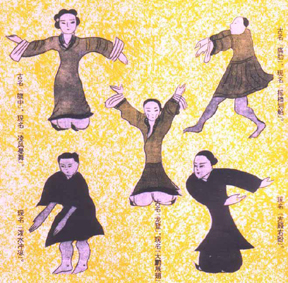
Help with withdrawal from heroin.One RCT, published in 2002, explored the effectiveness of Qi Gong for a withdrawal of héroïne40.During the first 10 days of rehab, 86 men were divided into 3 groups: Qi Gong (2 sessions 30 am to 2 pm Qi Gong day group, and 10 to 15 minutes of Qi emitted by a master); medication (weaning protocol with lofexidine-HCl) and control group (basic care and medication only to manage the severe symptoms).According to the results, participants in the group Qi Gong have accelerated a process of detoxification and a significant reduction in their levels of anxiety and withdrawal symptoms.The authors conclude that Qi Gong may be beneficial in heroin withdrawal, in addition to having the advantage of not causing side effects.
Help manage the symptoms associated with diabetes.In 2009, a systematic review has identified nine clinical studies, 3 randomized clinical trials relating to diabetes.We have compared the combination of Qi Gong sessions and standard care with standard care seuls41.The methodological quality of randomized trials was very low.Despite some improvements in blood conditions, the authors concluded that there was insufficient evidence to suggest that Qi Gong is an effective treatment for diabetes.
A new study involving 32 people with diabetes was conducted in 2010.Participants were divided into 3 groups: Qi Gong exercise (2 hours per week in 2 cases) and group témoin42.After 12 weeks, the results indicate that regular practice of Qi Gong has resulted in a significant decrease in blood glucose in diabetic patients.
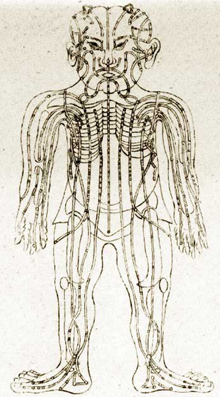
Various diseases.Since 2009, Qi Gong has been the subject of small studies conducted among people with acouphènes43, métabolique44 syndrome, and fatigue of burnout45 chronique46.Despite some promising results, the effect of Qi Gong on these health problems should be analyzed by other studies before we can decide on its effectiveness.
Section Therapeutic Applications
Research and writing: Estelle Vallée, M.Sc., Chair in integrated health, University Laval.
Revision: Claudine Blanchet, Ph.D., Chair in integrated health, University Laval.
(November 2010)



